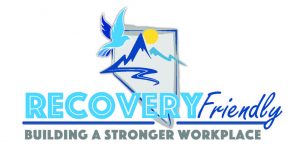In an effort to improve Nevada’s workplaces, the State of Nevada has developed a Recovery-Friendly Workplace Program to reduce the stigma of substance use and encourage workplaces to support treatment and recovery. Through education, and policy and procedure development to support recovery in all aspects, the program provides free resources to become a designated recovery-friendly workplace.
Adopting a recovery friendly workplace can help businesses reduce or avoid costs associated with substance use disorder impacting the workplace including premature death, increased accidents, absenteeism/sick leave, and loss of production.
To find out more about becoming a Recovery Friendly Workplace, and how to get started, visit the Nevada Division of Public and Behavioral Health (DPBH)

It is a myth that employees experiencing personal problems are “trouble” or are “bad” employees. The clear majority of people in the workforce want to do well and want to contribute but personal issues and problems can sometimes interfere with that goal. It’s not only a practical matter for an employer to want to help someone who is struggling at work due to a personal problem, but also the right thing to do.
A Recovery Friendly Approach, NV DPBH
